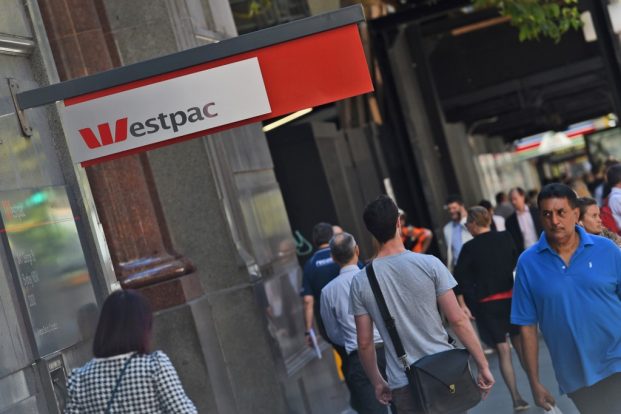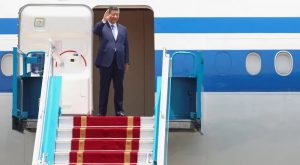Australia’s Westpac bank has agreed to pay a record A$1.3 billion (US$923 million) fine for more than 23 million breaches of money-laundering laws, the bank and regulators announced on Thursday.
Australia’s financial intelligence watchdog, AUSTRAC, said the wrongdoing included Westpac failures to monitor international payments suspected of funding child exploitation.
“Our role is to harden the financial system against serious crime and terrorism financing and this penalty reflects the serious and systemic nature of Westpac’s non-compliance,” AUSTRAC chief executive Nicole Rose said in the statement.
Westpac acknowledged the breaches in a statement submitted Thursday to a federal court, which must now approve the fine, the largest civil penalty in Australian history.
The penalty exceeded a provision of $900 million Westpac budgeted earlier this year to cover the expected penalty.
“I would like to apologise sincerely for the bank’s failings,” Peter King, Westpac’s chief executive, said in announcing the agreement.
King said Westpac had beefed up its financial crime monitoring capabilities and done a “reassessment of our culture, governance and accountability” to prevent future breaches.
“We are determined to continually lift our financial crime standards, comply with our obligations and uphold our customer, community and regulatory expectations,” he said in a statement.
The regulator accused Westpac in November 2019 of wholesale breaches of money-laundering and counter-terrorism regulations 23 million times, involving more than US$7 billion dollars in funds.
Among the most damaging allegations against Westpac, the regulator accused bank executives of “indifference” to evidence that some international transfers were being used to fund child exploitation.
AUSTRAC said the bank had been aware of heightened risks associated with frequent small payments destined for Southeast Asia since 2013 and had been “specifically briefed” on the risks with respect to one of its money transfer channels in June 2016.
Westpac’s chief executive, Brian Hartzer, subsequently resigned over the scandal, handing over to King, the bank’s chief financial officer at the time. The company chairman, Lindsay Maxsted, also stepped down.
Attorney General Christian Porter said the huge fine against Westpac “should serve as a wake-up call to all financial institutions” to comply with money laundering and counter-terrorism regulations.
Home Affairs Minister Peter Dutton, whose department spearheads the battle against child abuse, drug trafficking and terrorism, said Westpac had “breached the trust” of Australians.
“Banks have a responsibility to not let criminal activity go undetected and to protect Australians from serious and organised crime like child exploitation, drug trafficking and fraud,” Dutton said.
Australia’s largest lender, the Commonwealth Bank (CBA), paid a fine of A$700 million in 2018 after AUSTRAC found it had failed to report on 53,500 transactions.
That had been the highest penalty ever imposed on an Australian company until Thursday’s agreement.
Australia’s banking industry, one of the world’s most profitable, has been under intense pressure in recent years for a wide range of wrongdoing.
The country’s four biggest banks – CBA, Westpac, National Australia Bank (NAB) and ANZ – were the target of a royal commission that in 2019 exposed rampant malpractice across the sector.
It found banks had charged fees to dead people and to others for no services at all, used aggressive sales tactics and provided poor advice that led to significant financial upheaval for clients.
All the banks have reported significant hits to profits as they reimburse hundreds of millions of dollars to wronged customers.
A global problem
Experts around the world say financial regulators must impose more heavy penalties to combat money laundering. Their comments come after an international journalism investigation alleged that astronomical amounts of dirty cash has been flowing for years through some top global banks.
A probe by BuzzFeed News and the International Consortium of Investigative Journalists (ICIJ) has concluded that potentially dubious transfers worth about $2.0 trillion took place at a host of banks between 1999 and 2017.
Profits from deadly drug wars, fortunes embezzled from developing nations and Ponzi scheme proceeds were permitted to flow through the institutions, according to the allegations published on Sunday.
Five institutions – JPMorgan Chase, HSBC, Standard Chartered, Deutsche Bank, and Bank of New York Mellon – were accused by the probe of continuing to move assets of alleged criminals, even after being fined for earlier failures to stem the flows.
‘Very naive’
Experts say the system is overly reliant on banks to report suspicious transactions.
“This report shows that money-laundering measures which rely on the good will of banks are very naive,” said economist Clothilde Champeyrache, who specialises in criminology at French university CNAM.
Questioned about a potential solution, she replied: “Sanction more (banks) and stop being naive enough to think that the obligation to report suspicious transactions will work.”
The investigation was led by more than 100 international media outlets from 88 different countries and is based on over 2,000 suspicious activity reports (SARs) submitted to the US Treasury Department’s financial law enforcement agency, FinCEN, by banks.
“The scale of it is particularly staggering,” added Nienke Palstra, senior anti-corruption campaigner at non-governmental organisation Global Witness.
The system had allowed dirty funds to circulate “even if (there are) very strong suspicions of corruption and money laundering” – whether it is in Europe, the United States, or elsewhere.
Palstra said the SARs filings had not sparked any further action by banks or regulatory authorities.
“Issuing SARs should not be the end of the process. It should be the beginning. That for us is what is concerning.”
The banks named in the report insisted they were stepping up efforts to combat financial crime, sharpening safeguards and working with regulators to that end.
‘Deeply troubling’
In Britain on Wednesday, lawmakers wrote to the UK government to express outrage over the “deeply troubling” revelations.
“What needs to be done to further secure the financial system from economic crime?” the Treasury Select Committee added in an open letter, and called on UK law enforcement agencies to pursue those named in the FinCEN papers.
Authorities, however, often lack the means to deal with such vast flows of dirty money and prosecutions are rare, while commentators argue that the punishment does not match the potential reward from funnelling dubious funds.
“The punishment does not outweigh the profit. We are not seeing any bank being prosecuted for money laundering. It sends a signal that you can get away with it,” Palstra added.
Nevertheless, the world’s top banks possess the means to pay financial penalties and make provisions in their balance sheets, Champeyrache insisted, citing US giant JPMorgan Chase which set aside $23 billion for potential litigation payouts in 2014.
AFP
























